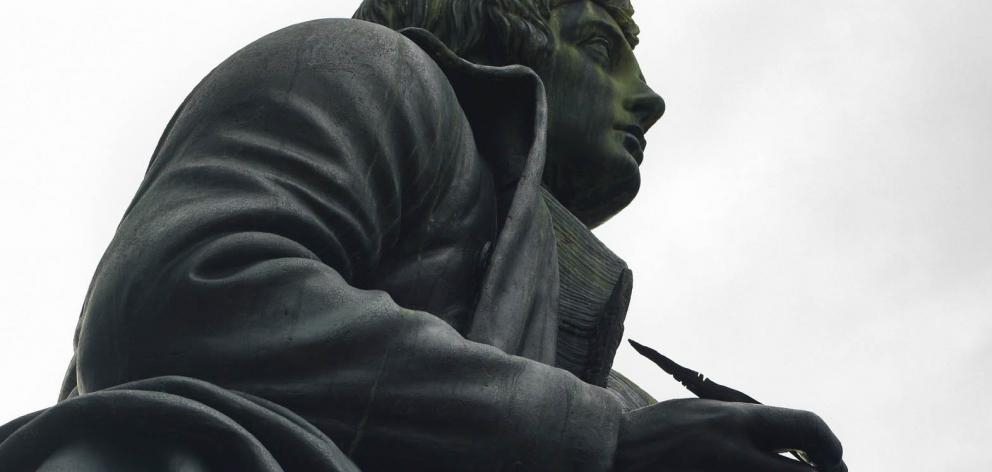
Harry Holland's 1920s biographical writing about Robert Burns has been published for the first time.
ROBERT BURNS: Poet and Revolutionist
Harry Holland and Dougal McNeill (ed)
Steele Roberts
By JIM SULLIVAN
Historians of the Labour Party have largely ignored Harry Holland's literary enthusiasms and, as Dougal McNeill notes, even Holland's biographer, Greymouth-born "Australian'' Patrick O'Farrell, "displayed little interest in Holland's intellectual formation or literary pursuits''.
Holland's 1920s biographical writing about Robert Burns (published now in book form for the first time) shows how much the poet's work was an intimate part of Holland's political philosophy.

Fervent remembrance of all things Scottish, rather than paying homage to a rebel, is probably what drove the first settlers, now a generation removed from home, to give Robbie Burns pride of place in the middle of Dunedin in 1887, but Harry Holland, had the full-blown socialist revolution succeeded, would have seen the Octagon statue as a memorial to a rebel, hence the "Revolutionist'' is his book's title.
The editor's introduction establishes Holland's background as a self-educated socialist journalist and notes his parallels with Robbie Burns, the working-class intellectual who used his writings to better the lot of the common man. Holland, of course, missed the advantage of being close in time to the French and American revolutions but he could always hope that a "Red dawn'' was just around the corner.
It was this unwavering determination to see Labour bring about a socialist revolution in New Zealand which made Holland's death something of a relief for his Labour lieutenants who were prepared to soften their socialism to ensure election. Holland was not a compromiser and his colleague Walter Nash recalled in a radio interview: "Harry Holland would never back down. He fought for what he knew was right.''
Holland traverses Burns' life and poems and finds much to admire. While the love poems and the "riot of fun'' in The Address to a Haggis are an important part of the Burns life view, A Man's a Man for a' that is described as a poem "in which the Socialist idea finds its most adequate expression''.
"Socialist'' poetry aside, Holland, writing 90 years ago, also provides a much more sympathetic gloss on the personal life of Robbie Burns than most of the biographers before him.
The book includes a selection of Holland's own verse and as an anti-war socialist his The Patriot provides a sting worthy of Burns' barbs about the landed gentry:
And when the legions marched away
To dye with blood the distant loam,
He bravely cheered them on their way
He waved a flag - AND STAYED AT HOME.
That Holland, working tirelessly as a union organiser, editor of the Maoriland Worker, parliamentarian and travelling speech maker also found time to write this book tells us something of the level of dedication which comes to a man with a cause.
No golf course ever tempted him to stray from his goal. In Robert Burns: Poet and Revolutionist Dougal McNeill has packaged succinctly a little-known aspect of a politician who deserves far more attention and publisher Steele Roberts continues its tradition of taking special care to produce attractive books.
Jim Sullivan is a Patearoa writer.
Win a copy
The ODT has five copies of Robert Burns: Poet and Revolutionist, by Harry Holland and edited by Dougal McNeill, to give away courtesy of Steele Roberts. For your chance to win a copy, email helen.speirs@odt.co.nz with your name and postal address in the body of the email, and ‘‘Robert Burns Book Competition’’ in the subject line, by 5pm on Tuesday, September 27.
LAST WEEK’S WINNERS
Winners of last week’s poetry giveaway, Salt River Songs by Sam Hunt, courtesy of Potton & Burton, were: Nalda Williams, of Mosgiel, Emma Ramsay Brown, of East Taieri, and Trevor Payton, Imogen Van Pierce and Stuart Hughes, all of Dunedin.












